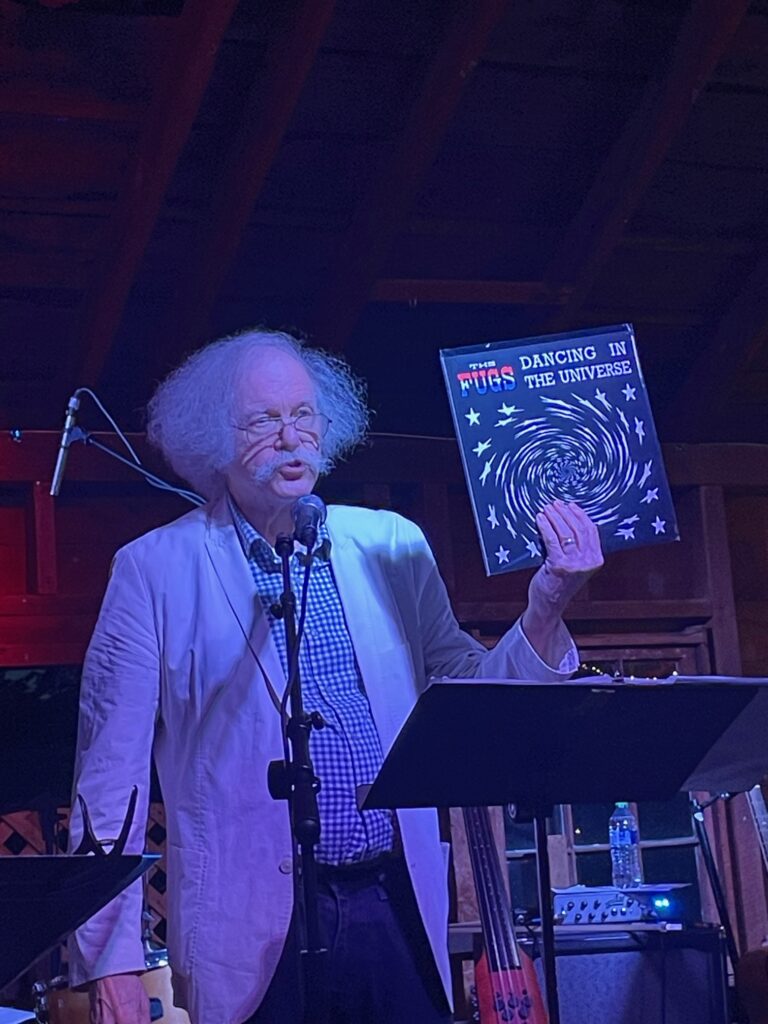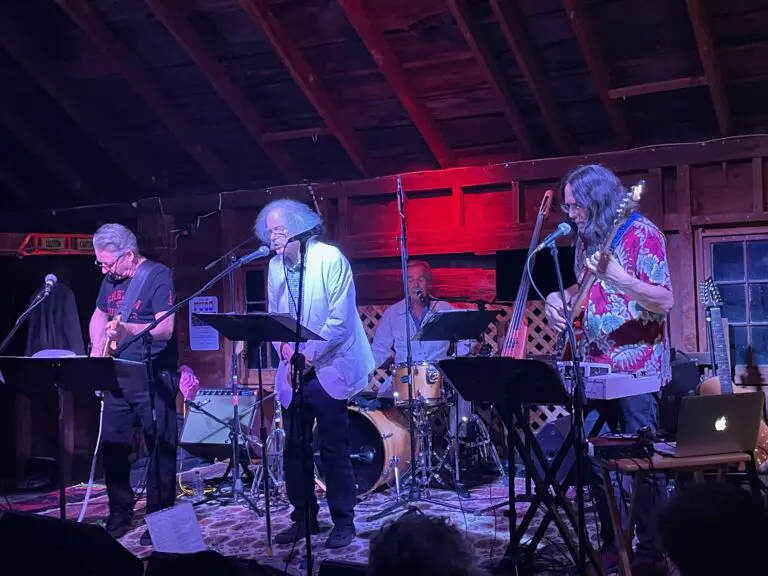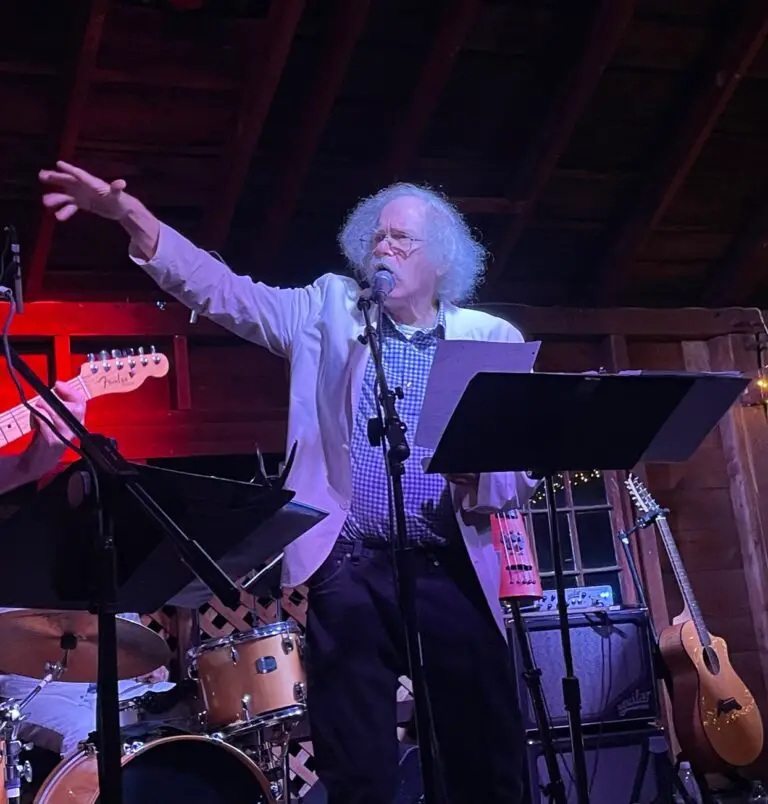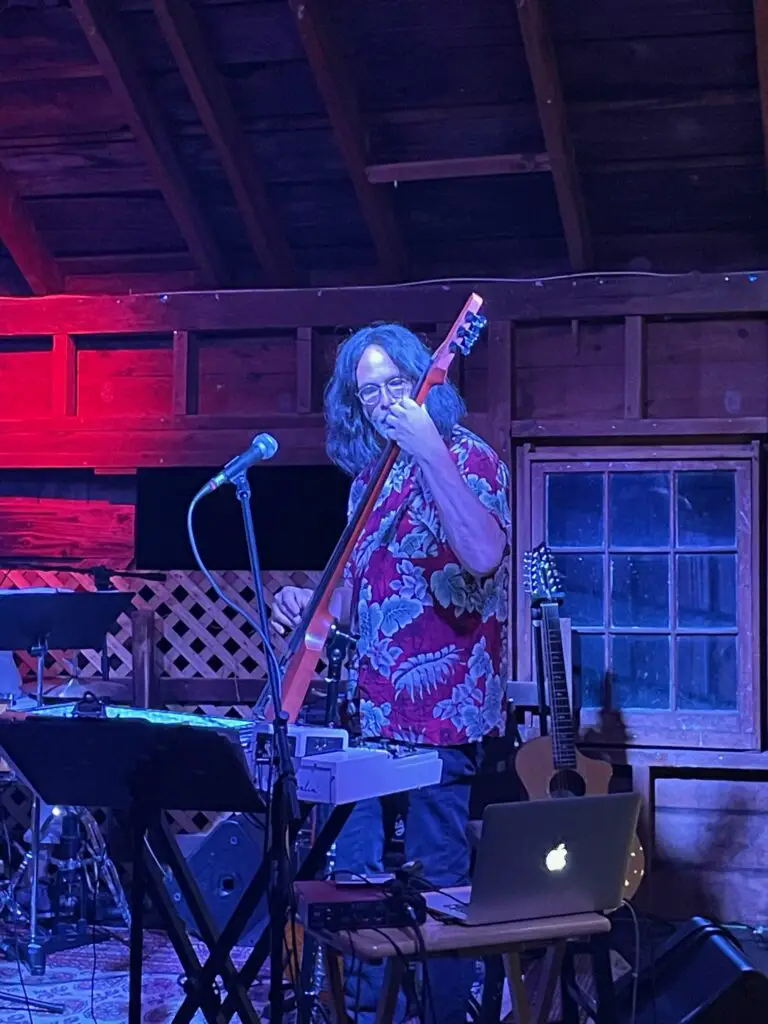This may well be the final go-round for The Fugs, the satirical and politically-charged group of musical anarchists founded way back in 1964 in the East Village by poets Ed Sanders and Tuli Kupferberg and drummer Ken Weaver.

For those not in the know, The Fugs were probably the furthest edge of the counterculture musical spectrum. They were a whip-smart, motely group known for their comical, and often lewd, noise rock lullaby/sendups of America’s hypocritical political and corporate structures, and their singularly vehement protests of the Vietnam War, something expressed in tunes like “Kill for Peace.” An FBI memo on The Doors labeled The Fugs “the most vulgar thing the human mind could possibly conceive.” Actually, they were, and continue to be at heart, a goodtime band whose messages are contained in hooky singalong-worthy works. In concert, these are delivered with the kind of slapstick comic timing that can warm and thoroughly engage even the chilliest audience.
With the release of their latest and reportedly final album Dancing in the Universe, The Fugs have reunited for a short series of what may be their final shows, at NYC’s City Winery and Woodstock’s legendary Byrdcliffe, America’s first art colony.

Today, the group is led by its last original member, Ed Sanders. Sanders is an insanely productive writer acclaimed for his many volumes of poetry, historical works and fiction like my own favorite, the five-volume Tales of Beatnik Glory. He may be best known to the general public for his 1971 best-seller, The Family, the consummate work on Charles Manson and the Tate-LaBianca murders.
On Friday, August 18, 84-year-old Sanders led The Fugs through a spirited two-set, 27 song performance at the rustic barn at Byrdcliffe in Woodstock, where the poet has lived since the mid-1970s.
The Fugs of today are far more polished than the 1960s edition. A lot of the credit for this goes to Scott Petito, the group’s bassist who has also served as their recording engineer and producer since the group reformed, after a 15-year hiatus, in 1984. The ensemble was completed by guitarist/singer Steven Taylor, an ethnomusicologist and longtime accompanist to poet Alan Ginsburg, and drummer/singer Coby Batty.

The group kicked off their first set with a blast of East Village past, “Slum Goddess.” This is a Ken Weaver-penned ode to a saucy and sexual free girl of the L.E.S. past, one whose “skirt is not much wider than her garrison belt.” This was followed by one their best-known offerings, “CIA Man,” a Kupferberg tune Sanders observed was “as true in 2023 as it was in the 1960s.” Sanders the poet came to the fore with a solo recitation of his nihilist opus, “Nothing.” Taylor performed a solo rendition of one of the standout tracks on this latest album, “God Bless Johnny Cash.” The set also included two new songs from their recent album produced from cassette demos recorded with Kupferberg before his death in 2010, the wonderful “I Want to Be Healed” and “Where Have All the Commies Gone?” The Fugs’ “R&R Hall of Fame” is a humorous response to Jann Wenner’s stance of forever barring the band for consideration in Cleveland’s fame rock hall.
The Fugs of today are far more musically adept than their original editions, especially as it relates to vocal harmony. Their unique three-part harmony swaddled the second set tracks, “Swinburne Stomp” and “Ah, Sunflower.” The thought-provoking “End Times” was an Ed Sanders’ tune inspired by a voice mail message about depression by another Woodstock songwriting legend Tom Pacheco, one where Taylor’s vocals gave off a Lou Reed vibe. In the introduction to the psychedelic “The Garden is Open,” Sanders told how it was The Fugs who gave Jimi Hendrix one of the two prototype wah-wah pedals they were gifted, a few days before he headed off to London and stardom. Sanders used it to make a rare positive commentary about America: “No country that can invent the wah-wah pedal can be all bad.”
Agreed, Mr. Sanders.
The Fugs continued to dig deep into their beefy discography with the 1966 single, “Frenzy,” and an update on Tuli’s anti-war classic, “Kill for Peace.” Another Kupferberg original from the newest disc, the melodic “Protest and Survive,” struck a blow for optimism in the face of our world’s problems, while “Crystal Liaison” was the perfect parody of the psychedelic “hogwash” of the 1960s, with lines like “In the great bowling alley of your mind, I am your Pin Boy.”

As for all the hoopla of this being The Fugs final spin on disc and in concert, it’s not very certain according to producer Petito. “It seemed like every album since their 1984 was going to be the last,” laughs Petito. And from the sharpness of his mind and humor and his energy, one can imagine the godly productive Sanders rounding up the troops for another round of musical blows against the empire in the not-too-distant future.


Comments are closed.